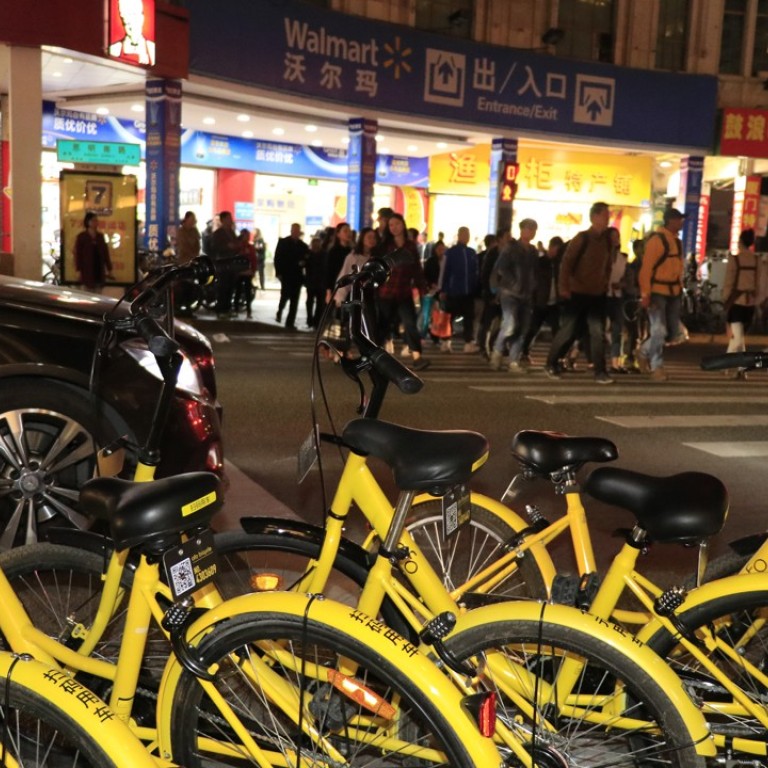
Bike-share companies flood Xiamen with app-controlled rides and competitive rates
Bikes can be shared for a small deposit, but competition is intensifying among fleets
When bikes moved from being a luxury item to a commuter staple, thousands of bicycles plied Xiamen’s streets every day. While the advent of the car dimmed China’s two-wheeled love affair, the relationship has bloomed anew with the rise of the shared-bike industry.
“Back in the 1990s, people used bikes every day and now there are more bikes on the street again,” says Zoe Lai, a local resident of more than 20 years.
She is referring to 300,000 public bikes from five companies that have flooded the streets of Xiamen. The bike tsunami is triggered by several factors: a great idea, government support and a huge inflow of capital trying to dominate a nascent industry.
The early leader in Xiamen’s bike share market is ofo, backed by Didi Chuxing with additional funding from the Alibaba Group Holdings, which owns the South China Morning Post. Close behind is Mobike, which is blessed with significant investments by Tencent and Foxconn. Ofo competes on price. With a 99 yuan (HK$113) deposit and rides as low as one yuan per hour, ofo’s bike can be rented by scanning a QR code with a mobile phone and downloading a four-digit unlock number. Mobikes include GPS and are rented by selecting a bike on the company’s app, which unlocks it. Users get 30 minutes or an hour of usage for one yuan, depending on the bike model.
You can never find a good one because they’re broken with a flat tyre, no seat or an extra lock on the wheel
Other competitors in Xiamen include Hellobike and Baicycle, two of the dozens of bike-sharing providers that have mushroomed in China over the past year.
Xiamen’s wide and flat roads and mild winters make it a great city for bike rentals. They are also convenient and environmentally friendly for short hops. The city’s unique twist in the resurgence of cycling is its Air Bike Lanes, a seven-kilometre “skyway” that runs beneath the city’s elevated bus lane. Popular at weekends, the elevated cycling path spans 11 stations that deposit riders at key transit points and near big shopping malls.
Industry analysts, however, expect a shakeout as smaller companies wither and survivors raise prices, as has happened in China’s auto rideshare market.
Customer satisfaction is mixed because the highly decentralised system means quality control can be difficult. “You can never find a good [bike] because they’re broken with a flat tyre, no seat or an extra lock on the wheel,” Lai says.
The popularity of bike sharing in mainland China has also had side effects, such as haphazard parking and the size and return of deposits.
China’s Ministry of Transport has promised new rules to address these issues shortly.

